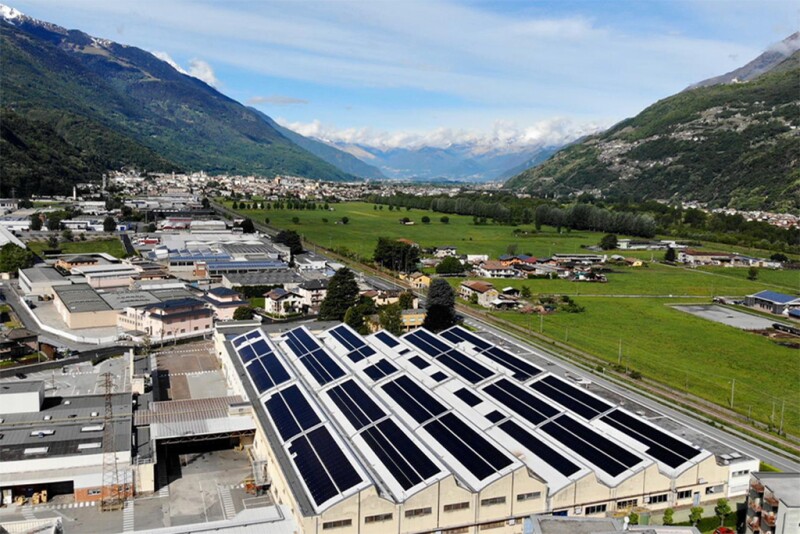The reduction of carbon through the energy value chain is essential to meeting net-zero ambitions but requires long-term visibility—and early commitment—from across traditional and emerging industries as well as from governments.
This is particularly true of the experience and expertise found in the oil and gas supply chain, where engineering, design, manufacturing, and service must work in tandem with the ongoing energy transition.
Supply-chain investments are, after all, significantly influenced by the speed at which new projects are constructed; how these developments compare with rival opportunities will determine the size and location of critical support elements.
And timing is as important as substance for the supply chain, where continued promises of progress tomorrow must finally make way for accelerated, definitive time frames for the development, construction, and operation of a fully decarbonized energy sector.
Energy technology company Baker Hughes is among those which have committed to reaching net zero by 2050. But for others to follow suit, and for meaningful transformation across the industry, there remain hurdles to overcome and risks to be removed.
Full Speed ... Ahead?
Development of the energy transition market has been slow for many manufacturing and service-based oil and gas supply-chain companies.
Customers have, for example, and with a few notable exceptions, been only minor participants in offshore renewables, so while parts of the workforce have transitioned into these projects, there remains a highly skilled core focused solely on the traditional energy sector.
The same is largely true for hydrogen and carbon capture, usage, and storage (CCUS)—two critical enablers of wider decarbonization. Concept and feasibility work has generated an early market for the engineering sector but left the actual business of realization and operation in limbo.
This means there is yet no market for those manufacturing and service companies interested in pursuing the transition to decarbonization, and little evidence when seeking the blessing of boards, shareholders, and banks.
While customers are—at least in outlook—shifting toward low-carbon power, CCUS, and hydrogen, there is a need to create opportunities for an existing supply-chain business to develop new capabilities or to redirect existing resources.
Inaction Is Not an Option
Delays to investment decisions can pose multiple risks. Prime among those is the loss of key supply-chain resources and/or their refocus to other parts of the world. This will erode national capabilities, which will in turn degrade diversification opportunities within the wider economy.
The interconnectedness of the oil and gas marketplace offers significant export opportunities for smaller manufacturers. Delays to construction of decarbonization projects could very well result in supply-chain players shifting to regions with higher ambitions on an accelerated timeline.
Further, a slower pace of the development of energy transition projects will be less able to support the supply-chain critical mass so essential to reaching net zero.
And, finally, the capabilities required to support ongoing production and decommissioning could be degraded by a supply chain shifting investment and focus to regions or customers with more-aggressive low-carbon plans.
After all, a commitment to decarbonization requires support for the overall transition journey along with all that means in terms of managing and safeguarding existing energy infrastructure.
Too Little, Too Late
If we take a would-be new energy project as an example—whether CCUS, wind, or hydrogen—the impacts of inaction become plain.
Imagine a developer repeatedly delaying a final decision on a major decarbonization project. The supply chain is as a result hesitant to invest in new facilities, to build capacity, to develop new processes. Rollout of the necessary technology does not happen—and the longer the delay, the more difficult it is to catch up.
And action is important. Decisions must be based on real money and visible timelines, rather than simply ambitions and blueprints. An individual project in a competitive landscape can crystallize a supply chain and will pave the way for the establishment of facilities and investment centered on first movers or those promising scale, with certainty, at pace.
Finally, supply chains are about real people and finite resources. The crunch anticipated as 2030 targets approach means any late movers will find it more difficult to secure the capacity required to equip, build, and operate a large-scale energy project. And, based on simple economics, the longer a developer waits, and the more crowded the market becomes, the higher the prices will be.
And while government, the regulators, and the supply chain all have a role to play in making decisions easier, it is incumbent on our international energy companies to commit. The scale of the projects involved and the complexity of the technology, engineering, and construction requires the type of proven, longstanding expertise found in particular across international oil and gas.
There is an argument that their social license to operate and their contract with the wider economy depends on decarbonization. There is also ample evidence that there is money to be spent. Action will require leadership and courage; but that has long been part of the industry’s DNA and no one is better placed to drive the changes required.
Powering Change
The oil and gas supply chain is a major employer in the UK and markets around the world. These companies perform innovation, engineering, design, manufacture, and servicing of equipment, and in many cases do this from lower-income regions while supplying a global market.
This supply chain represents the skills, technology, manufacturing, and design expertise to deliver technologies that are key to decarbonization including CCUS, hydrogen, emissions management, and low-carbon power.
However, those capabilities are at risk unless governments and industry, and in particular the international oil companies who must lead the transition, commit to accelerated time frames for construction and operation.
This will provide certainty to the domestic supply chain, enable investment in product portfolios, and build manufacturing potential.
We must act now to ensure we hit our carbon-reduction target and to motivate our innovative companies employing high-skill resources to capture the crucial export potential of the future supply chain.
Baker Hughes has made significant progress against that goal. But our ambition, appetite, and expertise—like many in the sector—mean we can, under the right market conditions, do much more.
Commit to the energy transition. Provide certainty for the supply chain. Reap the economic and decarbonization rewards.

James Richardson is the commercial director for UK industrial decarbonization with energy technology company Baker Hughes. He brings more than 25 years of experience in oil and gas upstream operations across field, technical, commercial, and business management roles within Baker Hughes.
The market for energy system decarbonization has matured significantly since 2021. In his current role, Richardson leads the company’s approach to the UK industrial decarbonization market across its portfolio to decarbonize oil and gas operations and to enable new energy infrastructure across the hydrogen, floating offshore wind, and carbon capture value chains.
His prior experience in outcome-based and alternative commercial models supports the development of partnerships and collaborative relationships, which will be essential for the rapid development of lower-carbon fossil-fuel production as well as to decarbonize industrial communities across the UK.
Richardson holds a geology degree from the University of St Andrews.

